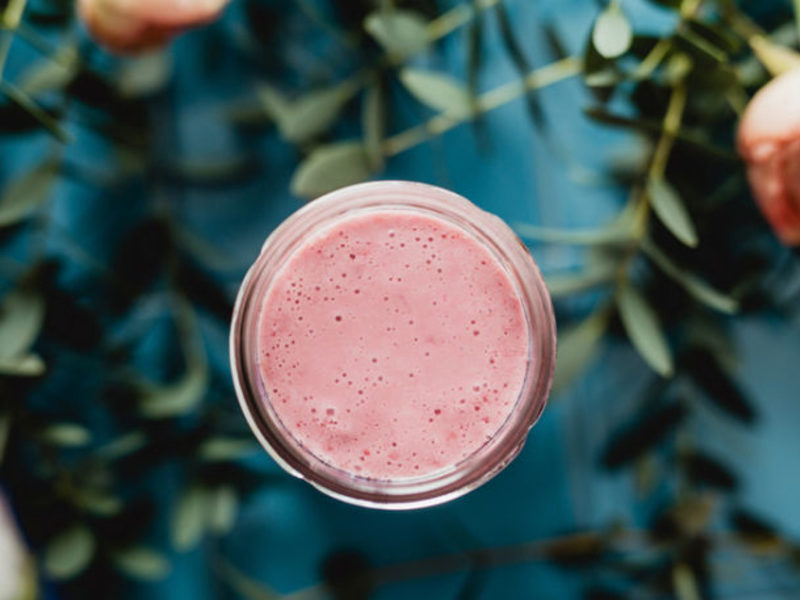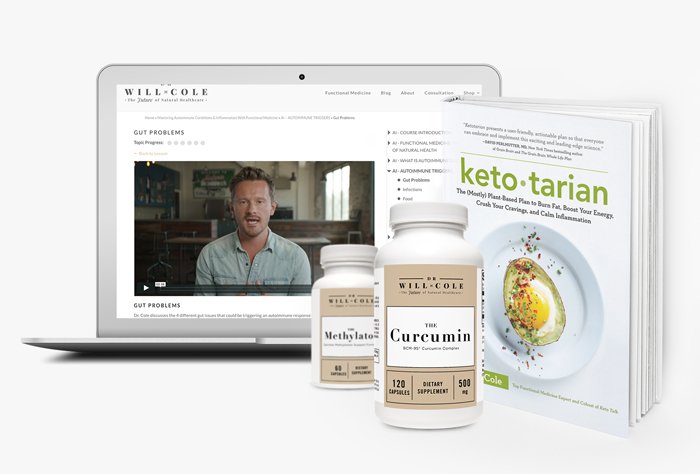The #1 Mistake You’re Making When Eating For Gut Health

We’re all trying to eat for better gut health around here, and we’d hate for simple mistakes to deter our journey. With that in mind, we asked some of the country’s top functional medicine doctors to weigh in on the top mistake most people make when eating for a great gut.
Start Your Health Journey Today
FUNCTIONAL MEDICINE CONSULTATIONS FOR PEOPLE AROUND THE WORLD
Snacking all day
I’d say snacking throughout the day isn’t great for your gut, particularly when it’s on foods that cause stress, like dairy or grains. The way you turn on longevity genes is to have windows of not eating. If you can’t go four to six hours between meals and at least 12 hours overnight, you probably have a problem with insulin or leptin, or both.
– Sara Gottfried, M.D., mbg class instructor and author of Younger
Eating yogurt
The biggest mistake I see people making around gut health is eating yogurt and thinking it’s a good source of probiotics. Most yogurts have very few live bacteria in them and are packed with sugar and are made from poor-quality, low-fat sources of milk. As a result, the yogurt feeds the sugar-dependent bacteria in the gut, and the quantities of live probiotics are so small as to be inconsequential. If you want to support great gut health it’s all about fiber – flax seeds, veggies like broccoli and kale, and whole unprocessed grains like quinoa and oats.
– Robin Berzin, M.D., founder of Parsley Health, and instructor of The Ultimate Stress Solution
Drinking too much kombucha
I find that people who drink too much kombucha or fermented drinks that can sometimes worsen candida, which wreaks havoc on gut health.
– Taz Bhatia, M.D., founder of CentreSpringMD and mbg class instructor
Consuming too many “gut-healthy” processed foods
The No. 1 mistake that people are making for gut health is consuming these packaged products that promise “probiotic health,” like processed yogurts with tons of sugar, probiotic drinks, even sugar-heavy kombucha.
– Amy Shah, M.D., founder of AmyMD Wellness and mbg class instructor
Eating when stressed
When we’re stressed out, whether pressed for a deadline or eating on the go, our body diverts blood flow and energy away from our stomachs, which slows down digestion. Food can then ferment in the stomach, leading to gas, bloating, and an imbalance of gut bacteria. Our sympathetic nervous system is our “fight or flight,” and often compared to running from a bear, which makes digestion less important. Elevated cortisol also contributes to hormone imbalance, insulin resistance (which can make us crave unhealthy foods), suppresses thyroid function (can slow bowel movements and increase buildup of toxins), and create “leaky gut” by loosening the gut’s tight junctions. Ideally, cooking and smelling food promotes healthy digestion as it starts in the mouth with the creation of amylase, one of the enzymes, and chewing our food to the point of mastication allows our brain to understand when we’re satiated. Then, hopefully followed at least by daily bowel movements that score either 3 or 4 on the Bristol Stool Chart.
Consuming too many raw vegetables
Eating too many raw vegetables is generally considered to be healthy. But for many people with gut health issues resulting in diminished enzyme production and an altered gut microbiome, digesting raw vegetables can be quite difficult, leading to gas, bloating, and abdominal pain. If you’re having gut issues, fill your plate with cooked vegetables, and over time incorporate more raw vegetables as digestion improves. Another route, which is great for rebuilding the gut microbiome (our little helpers that help break down plant vegetable fibers), is to eat fermented veggies (like sauerkraut, kimchi) as part of a balanced diet. The ultimate goal is nine servings of vegetables and fruit daily, but if you’re not eating that many servings, work your way up.
– Vincent Pedre, M.D., and author of Happy Gut
Cheating on your healthy plan
The most common problem I see when people eat for gut health is going back to old habits. We are so tempted by delicious and inexpensive foods that are high in sugar and white flour that we inevitably succumb to the tasty indulgence. The sugar promotes overgrowth of yeasts, which can lead to trouble. For those who are sensitive to gluten, the cheat meals lead once again to a leaky gut. The cheat meals are a problem.
– Terry Wahls, M.D., mbg class instructor
Not doing an elimination diet
A typical mistake I see in people when trying to fight inflammation and heal their gut is still eating certain foods that may be contributing to their problem. Even certain “healthy” foods may not work for everybody. That’s why I suggest an elimination diet to help your gut start to heal and really go back to baseline before reintroducing certain foods to find out what your body really loves and hates.
– Dr. Will Cole, functional medicine practitioner and mbg class instructor
As one of the first functional medicine telehealth clinics in the world, we provide webcam health consultations for people around the globe.
READ NEXT: A Guide To Starving Bad Gut Bacteria And Feeding The Good
View More At Our Store
Purchase personally curated supplements
and Dr. Will Cole’s books!

The information on this website has not been evaluated by the Food & Drug Administration or any other medical body. We do not aim to diagnose, treat, cure or prevent any illness or disease. Information is shared for educational purposes only. You must consult your doctor before acting on any content on this website, especially if you are pregnant, nursing, taking medication, or have a medical condition.
Our articles may include products that have been independently chosen and recommended by Dr. Will Cole and our editors. If you purchase something mentioned in this article, we may earn a small commission.

WRITTEN BY GUEST AUTHOR LIZ MOODY
REVIEWED BY DR. WILL COLE | COLE NATURAL HEALTH CENTERS
Dr. Will Cole, IFMCP, DNM, DC, leading functional medicine expert, consults people around the world via webcam and locally in Pittsburgh. He received his doctorate from Southern California University of Health Sciences and post doctorate education and training in functional medicine and clinical nutrition. He specializes in clinically researching underlying factors of chronic disease and customizing a functional medicine approach for thyroid issues, autoimmune conditions, hormonal imbalances, digestive disorders, and brain problems. Dr. Cole was named one of the top 50 functional medicine and integrative doctors in the nation and is the best selling author of Ketotarian and The Inflammation Spectrum.
Subscribe to the Newsletter
FREE FUNCTIONAL MEDICINE GUIDE REVEALING
14 WAYS TO DETOX YOUR LIFE
Get FREE access to this exclusive guide + subscriber-only giveaways, healthy recipes + my plant-based keto food guide.





